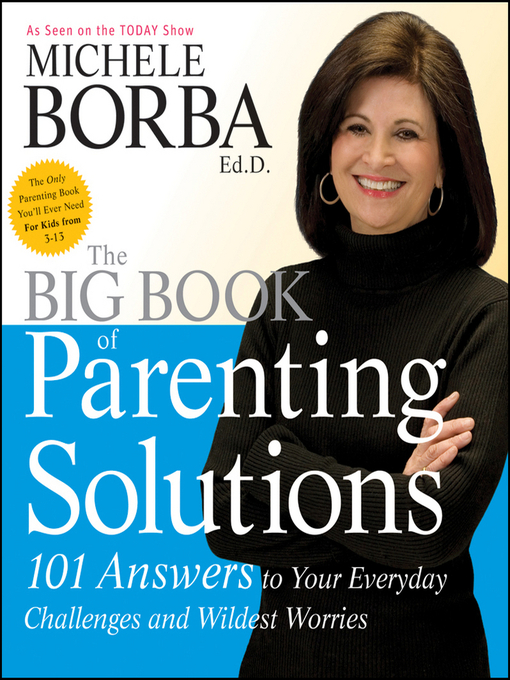“Big Brat Factor” Cures: Six ways to “unspoil” a spoiled, entitled child

Hidden Dangers of Raising Spoiled Kids
Of course we love our kids and want the best for them. We hate to let them down and don’t want to see them unhappy even for a nano-second. And we hate to think our little darling could be spoiled and ungrateful. But despite our hopes studies show that nearly two out of three parents feel their kids are spoiled!
Let’s face it, spoiling a child is rarely a parent’s goal, but is easy to do. In fact, the “spoiled kid” problem seems to be growing.
Eighty percent of people think kids today are more spoiled than kids of 10 or 15 years ago.
Only 12 percent of 2000 adults polled feel that kids commonly treat others with respect; most described them as “rude,” “irresponsible,” and “lacking in discipline.”
Though we love our kids to death and hate to see them unhappy, there are clear disadvantages of raising a spoiled child. Here are just a few:
~ Unpleasant to be around. Kids are turned off by their bossy and selfish behaviors. Adults don’t like their often rude and excessive demands. Spoiled kids don’t win popularity contests.
~ Lowers persistence. Things come a bit easier and spoiled kids are used to getting their way, so they often have a tougher time with life’s downsides and give up quicker.
~ Reduces satisfaction and appreciation. Getting “too much” can make a child perpetually unappreciative and become a chronically dissatisfied adult.Curbs self-esteem. Self-centered individuals have a higher likelihood of troubled relationships, depression, anxiety and lower self-esteem.
~ Diminishes empathy and character. If more concerned about your needs you diminish the capacity to identify for other people’s wants and needs. The long-term danger: Raising a child with “truncated character” whose concern is always Me-Me-Me!
Spoiled kids are usually easy to spot. Just ask other adults if your kid is spoiled and they’ll let you know. But if you’re having trouble diagnosing your kid, here are the four most common words that depict a spoiled kid. These behaviors can be typical in younger kids (especially toddlers), so look for a pattern in preschoolers and older. When it becomes your child’s “operating mode,” beware!
4-Word Test to Spot a Spoiled Kid
Spoiled kids are usually easy to spot. Just ask other adults if your kid is spoiled and they’ll let you know. But if you’re having trouble diagnosing your kid, here are the four most common words that depict a spoiled kid. These behaviors can be typical in younger kids (especially toddlers), so look for a pattern in preschoolers and older. When it becomes your child’s “operating mode,” beware!
NO: How does your kid typically respond to the word? Spoiled kids can’t handle the word; they expects to get what they want and usually do.
ME: Is your child self-centered and think the world revolves around her?Spoiled kids think more of themselves than of others. They feel entitled and expect special favors.
GIMME: Is your child greedy and never satisfied? Spoiled kids are more into getting than receiving. Because they have so much they usually just want more. Because they have a lot they tend to be unappreciative and a bit greedy.
NOW! Does your kid have patience or demand things ASAP? Spoiled kids can’t wait and want things instantly. It’s usually easier to give in than to postpone the child’s request.
“So now what?” you may ask yourself. Well, there is good news. There are strategies that will turn this unflattering behavior around. Yes, it will take work and commitment, but nothing will be more important to your child’s character than your success.
6 Strategies to Deprogram a Spoiled Kid

Deprogramming a spoiled kid is doable. After all, spoiled behaviors and attitudes are learned, so they can also be unlearned. Just keep in mind that while you can turn an unspoiled kid around, it isn’t going to be easy or pretty and the older the child the harder the change will be.
Also: do not expect your child to appreciate your new parenting style. In fact, expect resistance from your kid, but so be it. The end goal of parenting is to raise a humane, caring human being, right? (Oh please say it’s so!)
Here are core steps to begin the deprogramming process. Take things slowly…one step at a time…and do not give up!
1. Decide to Change Your Current Parenting
Your first step to deprogramming a spoiled kid is to assess your current parenting style to determine what is the most likely cause of your child’s learned behavior and attitude (not personality or temperament).
Here are the six biggest contributors to producing a spoiled kid. Read each, then tune into everyday your behavior and watch how you typically respond. Could any of these common contributors be ones you need to change?
Wanting life so much “better” for your kid.Of course, we want our kids to have a better life..but are you in danger of producing an “entitled” kid?
Permissive parenting.Not saying “No” or being afraid to set limits can lead to a child with too much power which often causes more self-centeredness. Could this be you?
Exhaustion, stressed and a time famine. We work hard or don’t spend as much “quality time” as we hope so it’s plain easier to give in when you’re tired. If we’re gone all day, we hate to say no when we’re with our kids. Sound familiar?
Misconstruing self-esteem. We worry that “saying no” to our kids lowers the self-esteem. If you share this belief, it’s dead wrong so read on: Stanley Coopersmith’s research finds that kids raised in less-permissive environments (i.e. “structure, parents provide limits) generally have higher self-esteem and are less likely to be spoiled than those reared in permissive households.
A materialistic world.Kids are exposed to a steady barrage of consumer-driven images and advertisements urging them to “buy-buy-buy” putting pressure on parents to do so. Are you feeling like your kids’ ATM machine?
Being a pal not parent. Over the past decades parenting styles have become more flexible, less authoritarian and more about being a PAL than a PARENT. Is this you?
2. Dethrone the Kid, Pronto!
Halt the constant accolades and don’t let the kid be the center of attention. Always praising, always rewarding and letting your kid think the world revolves around her increases self-centeredness. If you have a little princess addicted to attention then let the curtain fall so she is more aware of others. If your kid is a praise-aholic then try this: praise your child’s qualities or behaviors that she does for or with others.
When your child shares, cooperates, shows respect, tolerance, concern, sympathy, empathy…the list goes on…for someone. Start stretching your child from thinking “Me-Me-Me” to acting “We-We-We” actions.
3. Boost Character
Beware: spoiled kids can be demanding, unappreciative and disrespectful. The best antidote: boost character, and emphasize charity and respect for others. Start by emphasizing: Who you are is more important than what you own.” Downplay appearance and things and stress character traits (or inside qualities) instead (such as traits of perseverance, honesty, respect, kindness, responsibility).
Look for kind-hearted, charitable behaviors in your child and acknowledge them. If you want a humane, caring, respectful child, expect, reinforce, and model character.
4. Set Clear Limits
Pick your boundaries of what you will not cave into. If you think those through ahead you’ll be less likely to comply.
Once you know what you stand for, pass those rules on to others who care about your child so you have a support system. Then add “no” to your vocabulary and don’t feel guilty about using it.
Tricks: When your kid starts to nag, pretend your child is speaking a foreign language or respectfully walk away (lock yourself in the bathroom with a good supply of reading material if needed).
If you feel like an ATM machine – put away the money. Forget giving loans: put up a chore chart instead where your child can learn to that money doesn’t grow on trees (or in your pocket) but must be earned and saved.
The average kid nags a parent nine times. The average parent gives in at the ninth nag. Don’t let a spoiled kid win.
Use the Toy Store Test: Your child is walking down the toy aisle and wants a toy he doesn’t need. You say “No.” Can your kid handle “No?” Or does he usually beg, nag or have an exorcism to get his way?
5. Stretch Waiting Ability

Spoiled kids often expect to get their way and pronto! And always getting immediate gratification does not nurture a crucial character trait, perseverance, but increases self-centeredness.
New research shows that “waiting” time can be stretched. The trick is to slowly stretch your child’s ability based on current capabilities and maturity. It also helps if you teach a child a “wait” habit – or something to do during the seconds, minutes, hours, or days (depending on age).
Look for everyday moments to stretch your child’s ability to wait. A young child must sing the “Birthday song” if waiting for your attention. A school-ager can say the alphabet or list the states. A tween must wait at least 24 hours-or longer-before making any “have to have it” purchase.
6. Stretch Me to We
Young kids are egocentric and they do think the world revolves around them. They are concerned more about their own needs than others. But our goal is to stretch them gently away from ME-ME-ME so they start thinking WE-WE-WE.
The best way to help kids move from ME to WE is by stretching empathy. Empathic kids can understand where other people are coming from. Because they can “feel with” someone else, they are more generous, caring and unselfish
Try: Stress “Giving to others vs. Getting for yourself.” The child might give part of a weekly allowance to needy kid or box gently-used toys delivered to a shelter. Or volunteer as a family at a soup kitchen.
Try: Point out other’s emotions (facial expressions, posture, and mannerisms) to help your child tune into other people’s feelings. “How do you think Daddy feels?”
Try: Ask your child to imagine how the other person feels about a special situation: “Imagine you’re a new student and don’t know anyone? How would you feel?” Look for daily situations that could nurture empathy.
There are no “spoiled genes” so get busy!
Let’s face facts: there is no gene for a “spoiled kid.” (Sorry!) Self-centeredness is a learned behavior so we have only ourselves to blame if we feel our kids are in the “self-centered category.” Those unattractive behaviors are easy to learn so every so often push the pause button on your parenting and consider your everyday responses to your children.
Ask one question often: “Is my parenting style helping to prepare my child to handle life and be a contributing member of society?”

The answer should help guide your parenting.
Dr. Michele Borba
I am an educational psychologist, parenting expert, TODAY show contributor and author of 22 books. You can also refer to my daily blog, Dr. Borba’s Reality Check for ongoing parenting solutions and late-breaking news about child development.
Follow me on twitter @MicheleBorba
You can also find dozens more research-based and practical tips in my latest book, The Big Book of Parenting Solutions. Tips from this blog were adapted from the chapter, “Self-Centered.”

